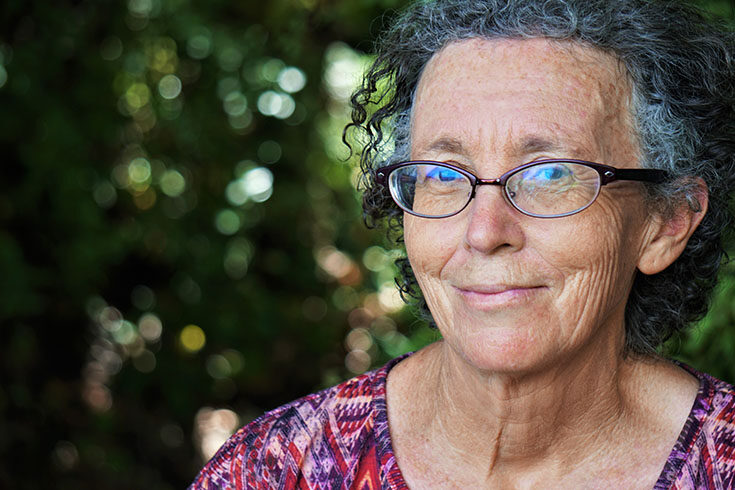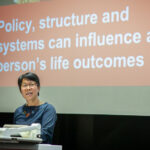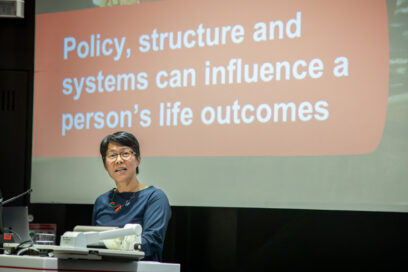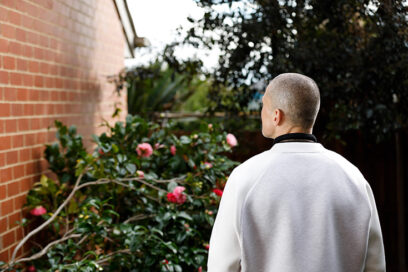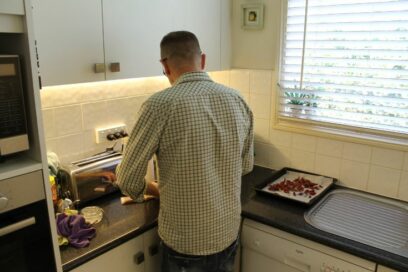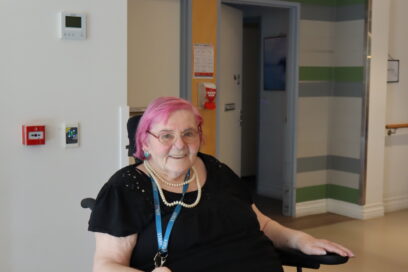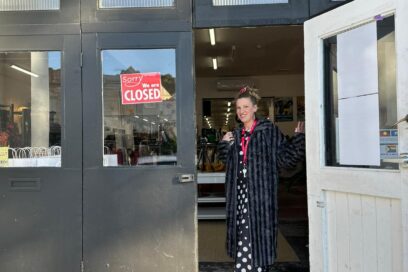New study reveals Sacred Heart Mission’s J2SI program has had a lifechanging impact on people who’ve experienced chronic homelessness and now found long-term housing.
For people who have had unmet health and social needs, complex trauma histories and mental health conditions, finally having a stable home instead of worrying about where they’re going to sleep each night; isn’t a remote possibility, but a permanent reality for former Journey to Social Inclusion participants, according to a new study.
Highlighting this year’s Homelessness Week theme that ‘everybody needs a home’, Sacred Heart Mission has released a Qualitative Study of Experiences and Perspectives of J2SI Study Participants by Monica Thielking, proving for people to exit chronic homelessness, they need a home alongside intensive help and support.
Unique insights into the lives of people experiencing homelessness
The report, put together by Associate Professor Monica Thielking – a registered psychologist, qualified youth worker and Chair of the Department of Psychological Sciences at Swinburne University – unpacks interviews over three years with people who have long-term histories of homelessness.
Giving a unique insight into the lives of people trapped in the cycle of homelessness, Monica interviewed a randomly selected group comparison group and J2SI participants from Phase Two, which ran from 2016-19. In total 46 interviews were completed and 63% of participants contributed to three waves of interviews.
“Participants shared many stories about the barriers they faced in relation to obtaining stable and adequate accommodation and getting their lives back on track,” Monica says.
“An overriding theme of chronic instability permeated their stories. These stories highlighted the circular and chaotic nature of homelessness.”
“The role of homelessness service providers and the service system more generally is to provide a streamlined, integrated, client-centred and quality service that anchors individuals in safe, secure and appropriate housing.”
The difference between housing and a home
The people Monica interviewed indicated they do not just need housing, they need a home, because there is a juxtaposition between being provided a ‘home’ and striving to build a life in allocated housing, while coping with inappropriate or unsafe issues in that housing.
“Often they had to cope with a multitude of negative factors present in the housing that they were allocated by homelessness agencies, such as neighbouring residents’ or house-mates’ substance use,” Monica says.
“Poverty and unaffordable housing were also strong themes in participants’ stories.”
Monica says the report highlights the need for an integrated approach to service provision for individuals with a history of chronic homelessness; something Sacred Heart Mission’s J2SI program can achieve.
J2SI changes lives, participants confirm
Throughout the study, most J2SI participants spoke highly about the program, with seven out of 10 speaking of the positive impact on their lives. People praised the support received by case managers and their willingness to prioritise their individual needs. The J2SI group particularly rated highly their case managers’ ability to provide practical and relational support.
Other areas of satisfaction included the positive impacts J2SI had on people’s health, mental health and inclusion. Reduced drug use and developing concrete plans to secure employment were mentioned by only a small number of participants.
The study stated that with further investment and refinement of the model, J2SI has the potential to support people throughout Australia to exit homelessness and to build meaningful lives in safe, stable accommodation.
This supports Sacred Heart Mission’s vision to make J2SI available nationally in order to end chronic homelessness across Australia through its Evaluation and Learning Centre, which has been established to gather, analyse and disseminate evidence of the impact of J2SI in achieving an end to chronic homelessness.
The report complements and contextualises findings presented in the quantitative final report of the J2SI evaluation titled: ‘Chronic Homelessness in Melbourne: Third-Year Outcomes of Journey to Social Inclusion’
A collection of quotes and anecdotes is listed below, but you can find the full J2SI reports here.
- “Well, accommodation. I have got steady accommodation. The (J2SI case manager) got me a nice place and I like it. That’s the biggest advantage I’ve had. I’ve been there nearly three years. If you know where you’re gonna lay your head every night, where you’re gonna get a feed from, it does take a lot of stress out of you. It takes a lot of stress out of your life.” – J2SI Phase Two participant
- “I actually had somebody that was an advocate for myself, rather than trying to have to do everything myself. I’d be back on the streets if that was the case.” – J2SI Phase Two participant.
- “J2SI have helped me get to all my [outreach] appointments and my doctors, my psychiatrists, places like here, and generally just try and keep me involved in society.” – J2SI Phase Two participant.
- “I’d be lost without J2SI because like I said, the – I had no support network after rehab and that – it’s turned out that J2SI is my support network.” – J2SI Phase 2 participant
- “If they are homeless and needed help, to get in contact with them (J2SI), because they’re really good. They’ll be able to help you, so it’d be right, from housing to medical, to just getting you help for you to get to appointments…so there is always a duty worker to talk to. If they can get accommodation for you, they will work with you to find something. But just be honest and open, you will get the services.” – J2SI Phase Two participant.
- “Anyone who works in this environment knows that by the time people are sleeping rough it wasn’t a bad week that brought them to that point. There are a whole lot of things that have happened for a long period of time. They’re not going to be remedied with a three-month intervention of one hour a week.” – J2SI Intensive Case Manager.
Background
Sacred Heart Mission’s Journey to Social Inclusion program is one of the most effective programs to end homelessness in Australia; it is a housing-first approach, provides rapid housing pathways, three years of intensive support that wraps services around the person and has a trauma-informed lens to the service delivery.
Intensive support and case management is provided to improve all areas of people’s lives. This includes supports to get and stay in housing, improving mental health and wellbeing, resolving drug and alcohol issues, building skills, increasing connection with community and contributing to society through economic and social inclusion activity.
This means in addition to exiting homelessness, people are supported to improve their health and well-being, and to build the skills, independence and social connections required to experience and maintain a better quality of life.

